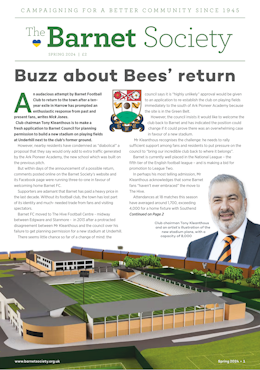
There could hardly have been a more poignant moment at Queen Elizabeth's Girls' School, Barnet. Within less than half an hour of the official announcement of the Queen's death, headteacher Violet Walker had to preside at the annual prize giving at a school which had an especially close association with her reign.
QE Girls – or Queen Elizabeth’s Girls’ Grammar School as it was known in 1957 – was the first state school to be visited by Queen Elizabeth II after she ascended to the throne.
She spent three hours touring the school and two former pupils, who were guests at the annual prize giving, recalled how they had spent weeks learning how to curtsey, ready to welcome the monarch as she called in at each classroom.
Mrs Walker (centre) – seen above under an official portrait commemorating the visit – is with Gill Williams (left) who was 11 at the time, and Vivienne Bell, who was 17, and one of the school’s subprefects who lined up in a guard of honour.
The portrait of the Queen is a replacement, and her signature is dated 1991, which was the year when QE Girls’ school hall was destroyed in a fire along with the original portrait and other memorabilia.

Some photographs of the 1957 visit did survive.

One shows the head girl presenting the Queen with the gift of a doll for Princess Anne. There was also the presentation of a gift for Prince Charles by the head of games.

Another photograph – which is reproduced on the school’s website – is of the Queen in the school’s physics laboratory.
An account of the visit in November 1957 said, “this was the young Queen’s first visit to a state school and was a very significant event for all pupils and staff at the time.”
The presentation of gifts for the young prince and princess was “followed by a few words from the Queen – her first unscripted speech!”

Vivienne Bell said the day of the Queen’s visit was her birthday and it was an unforgettable moment being in the guard of honour welcoming the queen. “I was a subprefect and we were on one side, and the prefects were on the other side.”
Gill Williams was in the first year and remembered how all the girls had spent weeks practising how to curtsey.
“First, we had to curtsey in the school hall and then curtsey again when she came to our classroom. The Queen looked lovely, in a cherry red coat, with a tight waist. Altogether she spent three hours at the school. It was a wonderful occasion.”
The badge on the girls’ school blazers said “QEGGS” reflecting its then status as a grammar school. QE Girls, which was established in 1888, became a comprehensive school in 1977.
Both Vivienne and Gill are trustees of the shared endowment foundation Queen Elizabeth’s Boys School, which was established in 1573 as a grammar school for the boys of Barnet by a charter from Queen Elizabeth I.
In welcoming pupils, parents, and guests at the school’s “celebration of excellence” prize giving, Mrs Walker said her first duty was to acknowledge the news of the Queen’s death and reflect on the importance of QE Girls’ special relationship through the foundation connecting them with Queen Elizabeth’s Boys’ School and its historic link to Queen Elizabeth I.
She explained that the signed portrait of Queen Elizabeth II which hangs in the school hall was a replacement of the original lost in the fire of 1991.
Her great pleasure was in being able to welcome Vivienne and Gill, the two guests who were pupils at the time of the visit, and she emphasised how the thoughts of everyone present at the prize giving that evening were the King and the Royal Family.
Mrs Walker introduced as guest speaker an aspirational former pupil, Hilda Wiredu, a trainee solicitor in the City of London, who graduated with distinction from law school, and who presented the prizes.
 Among the recipients was Grace Hanley (above), who won the Freda Balaam bequest for head
Among the recipients was Grace Hanley (above), who won the Freda Balaam bequest for head
girl in 2022, and who was commended for her “enthusiastic and outstanding contribution”.

Ms Wiredu – seen here with winners of the Harnett prize, Lily Hall and Trixie Smith – said she wanted to share her experiences with the pupils of today in the hope it would inspire them.
She had learned five points which she had incorporated into her own life: find your niche in life and work at it; remember it is OK to fail; recognise when you have to change your attitude and adapt; persevere and invest in yourself; and finally, have fun in your life.
At A level, Ms Wiredu did not get the grades she wanted and failed to get her first choice of a place at Liverpool University. Instead, she received an offer from Essex University, immersed herself into university life, and changed her attitude so that she could do the best she could.
Her first year was harder than she thought, so she changed her revision technique, spent more time in the library, and finished with the best marks and achieved an excellent award at law school.
She said she had put herself out there, had a brilliant internship despite failing to get the A level she had wanted, and was now a trainee solicitor at Clyde and Co.


